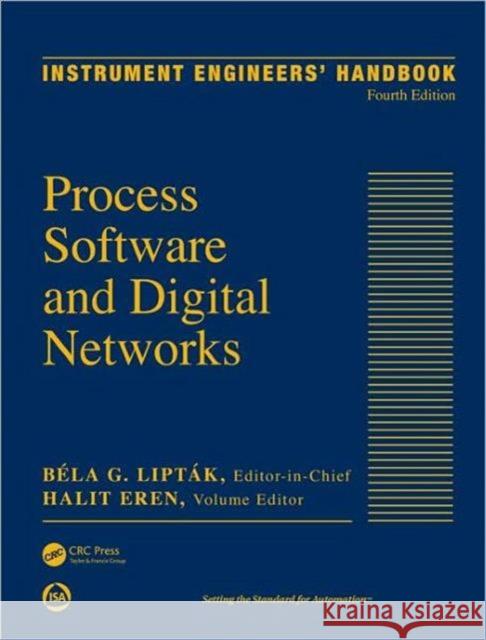Instrument Engineers' Handbook, Volume 3: Process Software and Digital Networks, Fourth Edition » książka
Instrument Engineers' Handbook, Volume 3: Process Software and Digital Networks, Fourth Edition
ISBN-13: 9781439817766 / Angielski / Twarda / 2011 / 1139 str.
Instrument Engineers' Handbook Volume 3: Process Software and Digital Networks, Fourth Edition is the latest addition to an enduring collection that industrial automation (AT) professionals often refer to as the "bible." First published in 1970, the entire handbook is approximately 5,000 pages, designed as standalone volumes that cover the measurement (Volume 1), control (Volume 2), and software (Volume 3) aspects of automation.
This fourth edition of the third volume provides an in-depth, state-of-the-art review of control software packages used in plant optimization, control, maintenance, and safety. Each updated volume of this renowned reference requires about ten years to prepare, so revised installments have been issued every decade, taking into account the numerous developments that occur from one publication to the next.
Assessing the rapid evolution of automation and optimization in control systems used in all types of industrial plants, this book details the wired/wireless communications and software used. This includes the ever-increasing number of applications for intelligent instruments, enhanced networks, Internet use, virtual private networks, and integration of control systems with the main networks used by management, all of which operate in a linked global environment.
Topics covered include:
- Advances in new displays, which help operators to more quickly assess and respond to plant conditions
- Software and networks that help monitor, control, and optimize industrial processes, to determine the efficiency, energy consumption, and profitability of operations
- Strategies to counteract changes in market conditions and energy and raw material costs
- Techniques to fortify the safety of plant operations and the security of digital communications systems
This volume explores why the holistic approach to integrating process and enterprise networks is convenient and efficient, despite associated problems involving cyber and local network security, energy conservation, and other issues. It shows how firewalls must separate the business (IT) and the operation (automation technology, or AT) domains to guarantee the safe function of all industrial plants. This book illustrates how these concerns must be addressed using effective technical solutions and proper management policies and practices. Reinforcing the fact that all industrial control systems are, in general, critically interdependent, this handbook provides a wide range of software application examples from industries including: automotive, mining, renewable energy, steel, dairy, pharmaceutical, mineral processing, oil, gas, electric power, utility, and nuclear power."











